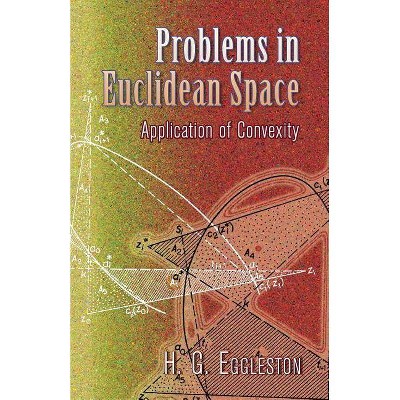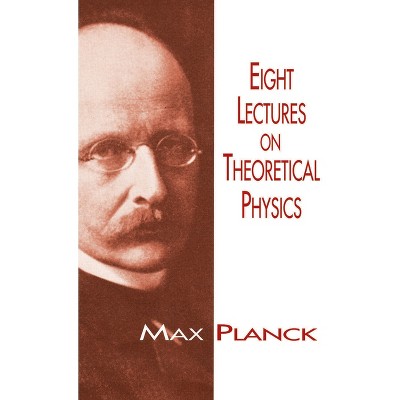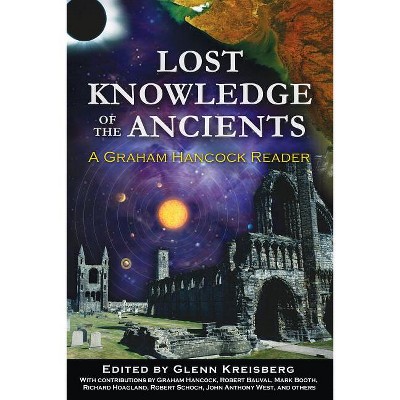Sponsored

Thing Knowledge - by Davis Baird (Hardcover)
$85.00
In Stock
Eligible for registries and wish lists
Sponsored
About this item
Highlights
- Western philosophers have traditionally concentrated on theory as the means for expressing knowledge about a variety of phenomena.
- About the Author: Davis Baird, Professor and Chair of Philosophy at the University of South Carolina, is author of Inductive Logic: Inferring the Unknown (1999) and coeditor of Heinrich Hertz: Classical Physicist, Modern Philosopher (1997).
- 273 Pages
- Science, Microscopes & Microscopy
Description
About the Book
"Davis Baird's "Thing Knowledge" uses instruments to do philosophy. Grappling with a wonderful assortment of objects--from antique orreries to modern spectrographs--he draws the reader deep into fascinating questions about the nature of knowledge. All too often, the knowledge Baird pursues here has been obscured by accounts that reduce understanding to theory. By contrast, in this rich text Baird shows the myriad of ways that models and devices do work in science: by representing, by manipulating, by measuring, and by calculating. This is a book as lucid on the semantic account of theories as it is on the inner workings of the cyclotron; it is a book that brings the laboratory to philosophers and philosophy into the laboratory."--Peter Galison, author of "Einstein's Clocks, Poincare's Maps: Empires of Time""Davis Baird has given us something new and demanding to think about: namely, in addition to propositional knowledge, he argues, there is 'thing knowledge.' That is, scientific instruments embody or encapsulate knowledge in ways that most often not transparent. In making his case, Baird forces us to reconceptualize how we go about doing science and how to understand the product of human labor, both intellectual and manual. "Thing Knowledge" is must reading for anyone interested in the development of science and its attendant technologies."--Joseph C. Pitt, author of "Thinking About Technology: Foundations of the Philosophy of Technology"
"Over the years the new frontier in philosophy of science has been on logic, then on theories to most recently on models and experimentation. Davis Baird goes one step further and considers the 'immediate' kind of knowledge embodied by scientific instruments and devices. His book is highly thought provoking and will become a classic source."--Eric Scerri, UCLA, Department of Chemistry and Biochemistry, and editor of Foundations of Chemistry.
"From the air pump to the dynamo to the cyclotron, machines have played key roles in the development of scientific knowledge. Here, for the first time, Davis Baird looks at those machines as actual forms of scientific knowledge. Baird moves adeptly from historical case study to philosophical explanation in this convincing study of the material culture of science."--Ann Johnson, Department of History, Fordham University
Book Synopsis
Western philosophers have traditionally concentrated on theory as the means for expressing knowledge about a variety of phenomena. This absorbing book challenges this fundamental notion by showing how objects themselves, specifically scientific instruments, can express knowledge. As he considers numerous intriguing examples, Davis Baird gives us the tools to "read" the material products of science and technology and to understand their place in culture. Making a provocative and original challenge to our conception of knowledge itself, Thing Knowledge demands that we take a new look at theories of science and technology, knowledge, progress, and change. Baird considers a wide range of instruments, including Faraday's first electric motor, eighteenth-century mechanical models of the solar system, the cyclotron, various instruments developed by analytical chemists between 1930 and 1960, spectrometers, and more.From the Back Cover
"Davis Baird's Thing Knowledge uses instruments to do philosophy. Grappling with a wonderful assortment of objects--from antique orreries to modern spectrographs--he draws the reader deep into fascinating questions about the nature of knowledge. All too often, the knowledge Baird pursues here has been obscured by accounts that reduce understanding to theory. By contrast, in this rich text Baird shows the myriad of ways that models and devices do work in science: by representing, by manipulating, by measuring, and by calculating. This is a book as lucid on the semantic account of theories as it is on the inner workings of the cyclotron; it is a book that brings the laboratory to philosophers and philosophy into the laboratory."--Peter Galison, author of Einstein's Clocks, Poincare's Maps: Empires of Time"Davis Baird has given us something new and demanding to think about: namely, in addition to propositional knowledge, he argues, there is 'thing knowledge.' That is, scientific instruments embody or encapsulate knowledge in ways that most often not transparent. In making his case, Baird forces us to reconceptualize how we go about doing science and how to understand the product of human labor, both intellectual and manual. Thing Knowledge is must reading for anyone interested in the development of science and its attendant technologies."--Joseph C. Pitt, author of Thinking About Technology: Foundations of the Philosophy of Technology
"Over the years the new frontier in philosophy of science has been on logic, then on theories to most recently on models and experimentation. Davis Baird goes one step further and considers the 'immediate' kind of knowledge embodied by scientific instruments and devices. His book is highly thought provoking and will become a classic source."--Eric Scerri, UCLA, Department of Chemistry and Biochemistry, and editor of Foundations of Chemistry.
"From the air pump to the dynamo to the cyclotron, machines have played key roles in the development of scientific knowledge. Here, for the first time, Davis Baird looks at those machines as actual forms of scientific knowledge. Baird moves adeptly from historical case study to philosophical explanation in this convincing study of the material culture of science."--Ann Johnson, Department of History, Fordham University
About the Author
Davis Baird, Professor and Chair of Philosophy at the University of South Carolina, is author of Inductive Logic: Inferring the Unknown (1999) and coeditor of Heinrich Hertz: Classical Physicist, Modern Philosopher (1997).Dimensions (Overall): 9.22 Inches (H) x 6.06 Inches (W) x .95 Inches (D)
Weight: 1.24 Pounds
Suggested Age: 22 Years and Up
Number of Pages: 273
Genre: Science
Sub-Genre: Microscopes & Microscopy
Publisher: University of California Press
Format: Hardcover
Author: Davis Baird
Language: English
Street Date: February 10, 2004
TCIN: 94449833
UPC: 9780520232495
Item Number (DPCI): 247-10-1082
Origin: Made in the USA or Imported
If the item details aren’t accurate or complete, we want to know about it.
Shipping details
Estimated ship dimensions: 0.95 inches length x 6.06 inches width x 9.22 inches height
Estimated ship weight: 1.24 pounds
We regret that this item cannot be shipped to PO Boxes.
This item cannot be shipped to the following locations: American Samoa (see also separate entry under AS), Guam (see also separate entry under GU), Northern Mariana Islands, Puerto Rico (see also separate entry under PR), United States Minor Outlying Islands, Virgin Islands, U.S., APO/FPO
Return details
This item can be returned to any Target store or Target.com.
This item must be returned within 90 days of the date it was purchased in store, shipped, delivered by a Shipt shopper, or made ready for pickup.
See the return policy for complete information.
















